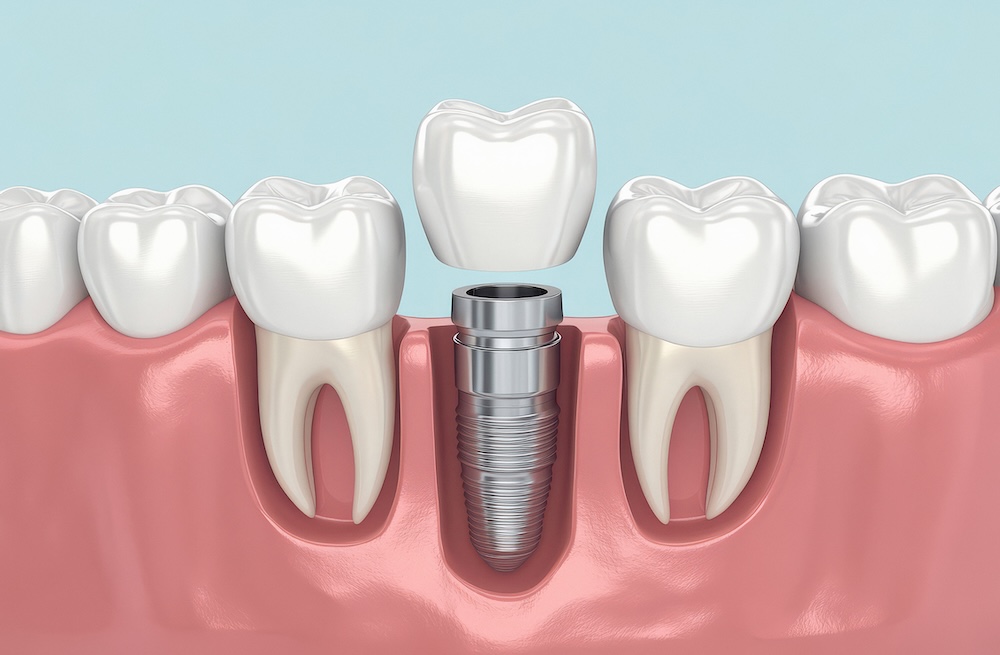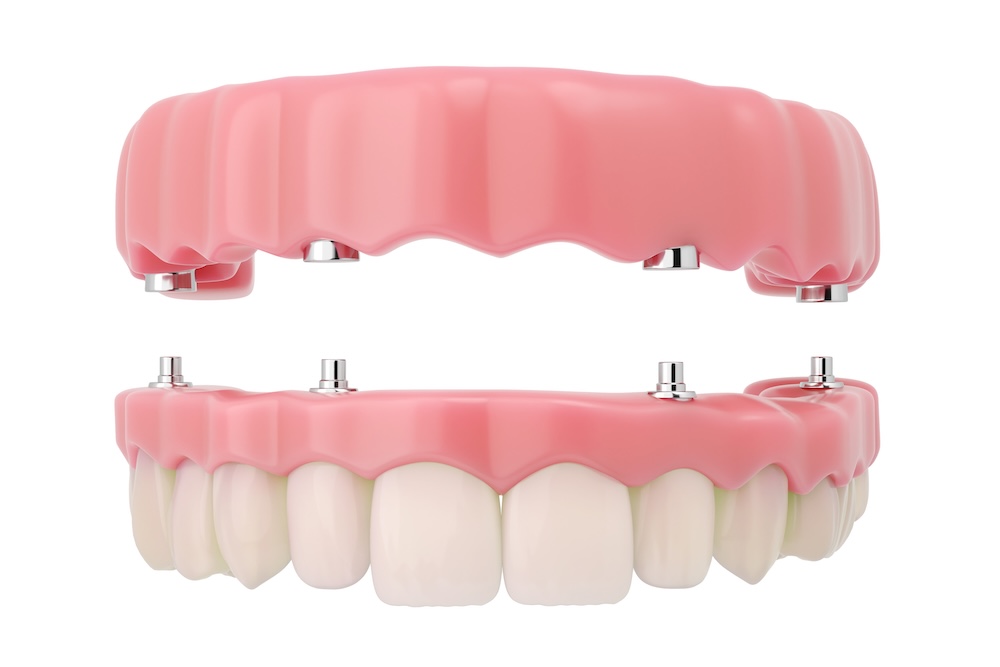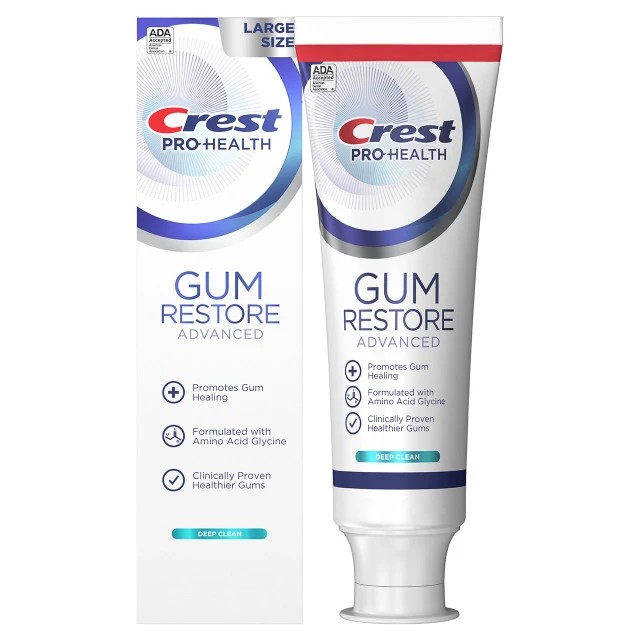Dental Implants: Surgery, Advantages, Risks, and Insurance

Summary
Key Takeaways
- Dental implants involve surgically placing a replacement tooth root into the mouth
- The procedure requires placing a titanium post into the jawbone followed by attaching a crown
- Benefits include restored chewing function, prevention of bone loss and a boost in appearance and self-confidence
- Risks can include infection, nerve damage, sinus issues and possibly implant failure and peri-implantitis
- Costs of dental implants can range from $3,000 to $6,000 per tooth with additional costs for related procedures
- Insurance coverage varies widely, so it’s best to review your plan and possibly consider alternative financing options
Table of Contents

This blog has been reviewed and approved by Dr Robert Lee, a dental professional of 35 years
LEARN MORE >Key Takeaways
What Is a Dental Implant?
A dental implant acts as a replacement root for a missing tooth and involves a titanium post surgically placed into the jawbone. Over time, the bone fuses with the implant. This is called osseointegration and creates a stable foundation for a crown, bridge, or denture. This fusion makes implants one of the most durable and reliable options for tooth replacement.
Dental Implant Surgery Procedure

Here’s what you need to know about getting a dental implant, from the initial consultation to the final result.
Consultation and Planning
- A dentist or oral surgeon will assess your oral health, review your medical history, and take X-rays or 3D scans and dental impressions
Implant Placement
- Under local anesthesia, the implant is placed into the jawbone. The procedure usually takes about an hour per implant
Healing
- Healing post-surgery takes several months and allows the implant to fuse with the bone
- During this time, a temporary restoration may be placed
Abutment Placement
- Once healing is complete, an abutment is attached to the implant
- Acts as a core to provide a stable platform for the final restoration to be placed on the implant
Crown Placement
- A custom-made crown is placed on the abutment, and the restoration is complete
Advantages of Dental Implants

Long Term Durability
- With proper care, dental implants can last a lifetime
- The titanium post fuses with the jawbone and becomes a permanent part of your oral structure
- Can withstand the forces of biting and chewing just like natural teeth
- Often more durable than other tooth replacement restorative options like traditional bridges or removable dentures.
Prevents Bone Loss
- When a tooth is lost, the jawbone in the area begins to deteriorate
- Dental implants act like natural tooth roots which stimulate the jawbone and prevent bone loss
- Helps maintain facial structure and overall oral health
Restores Full Chewing Function
- Dental implants are anchored securely in the jaw which allows for full chewing ability
- Provide a stable base so you can eat any food without worry of slipping
Natural Look and Feel
- Implants mimic the appearance and function of natural teeth
- Dental implants restore your smile’s appearance and boost self-confidence
- Allows you to speak, eat, and laugh with confidence
- Can significantly enhance your quality of life
Risks and Considerations
Dental implants are generally safe, but like with any surgery, there are potential risks
Infection at the Implant Site
- Risk of infection at the implant site, but proper oral hygiene and post-surgery care can minimize this risk
Nerve Damage
- Improper placement of the implant can damage the surrounding nerves, resulting in pain, numbness, and tingling in the gums, lips, or chin
Sinus Issues
- For upper jaw implants, there’s a risk of the implant protruding into the sinus cavity which can lead to sinus problems
Implant Failure
- The implant may fail to integrate with the bone, leading to the loosening or loss of the implant
Peri-implantitis
- An inflammatory condition that affects the tissues around the implant, often due to poor oral hygiene
- Regular dental professional checkups and good oral care can help prevent this
Cost
- Implants can be expensive and can range from $3,000 to $6,000 per tooth without insurance
Costs and Insurance Coverage
Costs can vary widely and typically range from $3,000 to $6,000 per tooth. Full-mouth dental implants also vary significantly and can range from $24,000-$90,000. The average full mouth cost is often cited to be around $34,000, but this can vary dramatically. Factors that affect the cost include the need for additional procedures, including bone grafts, sinus lifts, the type of implant used, and even the geographic location of the dental practice.
Here are some options that can help you cover the cost:
Dental Insurance
- Dental insurance plans often classify implants as a major procedure and may cover implants up to 50%
- Many plans have exclusions or limitations regarding implants
- Crucial to review your policy details and understand your coverage
Medical Insurance
- In certain cases, medical insurance may cover implants if required due to accident or medical condition
Alternative Financing Options
- Health Savings Accounts (HSA) or Flexible Spending Accounts (FSA) allow you to use pre-tax dollars for medical expenses, including dental implants
- Dental savings plans offer discounts on dental procedures for a yearly fee
- Payment plans help spread out the cost of implants, and many dental offices offer financing options
Summary
A dental implant acts as a replacement root for a missing tooth. It involves a titanium post surgically placed into the jawbone that over time fuses with the bone, creating a stable foundation for a crown, bridge, or denture. This makes implants one of the most durable and reliable options for tooth replacement. Since they look and feel like natural teeth, they offer benefits such as restored chewing function, prevention of bone loss, and a boost in appearance and self-confidence. While the procedure is generally safe, risks can include infection, nerve damage, sinus issues, and implant failure. So, it's important to discuss any potential risks with your dental professional.
The cost of dental implants can range from $3,000 to $6,000 per tooth, with the cost of full mouth implants often starting around $24,000 and varying significantly based on the case. Factors that affect the cost include the need for additional procedures, the type of implant used, and the geographic location of the dental practice. Insurance coverage for implants varies, so it's advisable to explore all available options to manage costs effectively.
Dental Procedures: Restorative Measures for a Healthier Smile
Modern dentistry can help correct damage, improve appearance, and keep your oral health in check. Get the most out of any dental procedure with a thorough oral care routine from home.
Your personalized daily oral care routine can help preserve any dental work done and maintain a stronger smile going forward:
- Brush 2X/day with an Oral-B Electric Toothbrush: After removing the decayed material from teeth, fillings and restorations are used to finalize the procedure. When compared to a regular manual toothbrush, electric toothbrushes like the Oral-B iO, help remove 100% more plaque—the main culprit of tooth decay such as a cavity.
- Use a Crest Fluoride Toothpaste: Brush with a toothpaste that’s formulated with fluoride, such as Crest, to reinforce enamel strength and reduce your risk of tooth decay. Certain formulas, like Crest Pro-Health, also contain ingredients like stannous fluoride that help fight plaque and gingivitis, promoting healthier gums to support the dental work that has been done.
- Pair String Floss with an Oral-B Water Flosser: Cleaning around dental work such as bridges, crowns, and implants can help reduce plaque bacteria buildup. A water flosser gently washes away and leftover plaque and food debris for healthier teeth and gums.
- Rinse with a Crest Mouthwash: Root canals involve the removal of infected tooth nerves or pulp; the area is then sealed off often accompanied by a crown. Help maintain excellent oral hygiene around your newly restored tooth by swishing with an antibacterial rinse.
- Brighten Up with an Oral-B + Crest Whitening Bundle: While dental work like veneers and bonding is color-matched to your smile, your natural teeth can still stain. To maintain an evenly colored smile, you can use an at-home whitening routine equipped with a whitening brush head, whitening toothpaste, and a whitening mouthwash to lift surface stains from your natural teeth.
Pair professional dental procedures with a personalized at-home oral care routine of brushing twice daily, flossing at least once a day, and rinsing with an antibacterial mouthwash, you can better support the long-term success if your treatment for a healthier, more confident smile.
FAQs
-
Are dental implants safe?
-
How long do dental implants last?
-
Does insurance cover dental implants?
Sources
- https://my.clevelandclinic.org/health/treatments/10903-dental-implants
- https://www.fda.gov/medical-devices/dental-devices/dental-implants-what-you-should-know
- https://www.mayoclinic.org/tests-procedures/dental-implant-surgery/about/pac-20384622
- https://www.webmd.com/oral-health/dental-implants
- https://my.clevelandclinic.org/health/treatments/16914-oral-hygiene
- https://www.dentalhealth.org/pages/category/treatments-and-procedures?take=17&Take=17
- https://www.deltadental.com/us/en/protect-my-smile/procedures.html
- https://www.nhs.uk/live-well/healthy-teeth-and-gums/dental-treatments/
Grender, J., et al. (2022). A 12-Week Randomized Controlled Trial Comparing a Novel Electric Toothbrush With an Extra Gentle Brush Head to a Manual Toothbrush for Plaque and Gingivitis Reduction. Compendium of Continuing Education in Dentistry (Jamesburg, N.J. : 1995), 43(3), f20–f29.
He, T., et al. (2017). Compendium of Continuing Education in DentistryJournal of Clinical Dentistry, 28(4 Spec No B), B1-5.
Lambert T. J. (2022). A Home Care Regimen With Oral-B iO Toothbrush and Targeted Clean Brush Head to Reduce Peri-Implant Mucositis Compendium of Continuing Education in Dentistry (Jamesburg, N.J. : 1995), 43(3), f5–fE13
Thurnay, S., et al. (2022). A Global, In-Market Evaluation of Toothbrushing Behaviour and Self-assessed Gingival Bleeding with Use of App Data from an Interactive Electric Toothbrush. Oral Health & Preventive Dentistry, 20, 1–10. https://doi.org/10.3290/j.ohpd.b2572911
White D. J. (2005). An alcohol-free therapeutic mouthrinse with cetylpyridinium chloride (CPC)--the latest advance in preventive care: Crest Pro-Health Rinse American Journal of Dentistry, 18 Spec No, 3A–8A.
Table of Contents
- What Is a Dental Implant?
- Dental Implant Surgery Procedure
- Advantages of Dental Implants
- Risks and Considerations
- Costs and Insurance Coverage
- Summary
- Dental Procedures: Restorative Measures for a Healthier Smile
-
- FAQs
- Sources

This blog has been reviewed and approved by Dr Robert Lee, a dental professional of 35 years
LEARN MORE >
Sign Up
for oral care tips, expert advise, and exclusive offers.

Sign Up
for oral care tips, expert advise, and exclusive offers.



